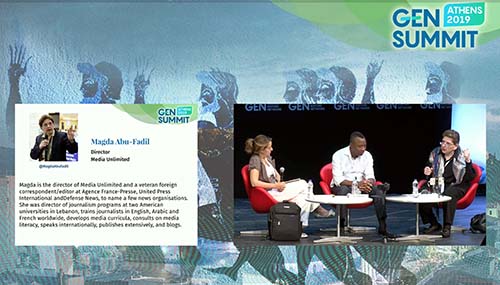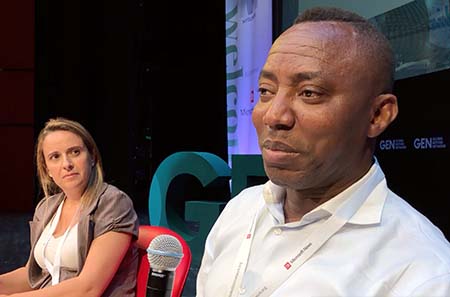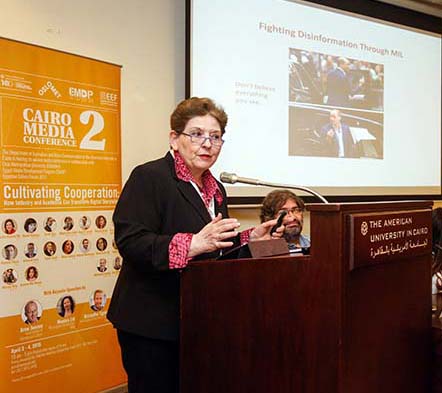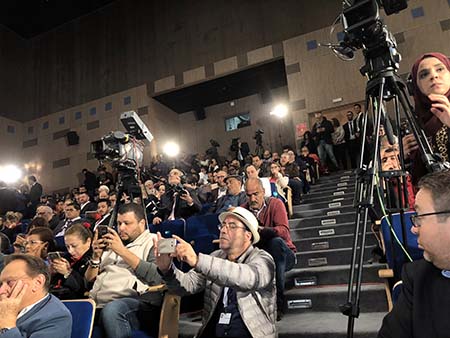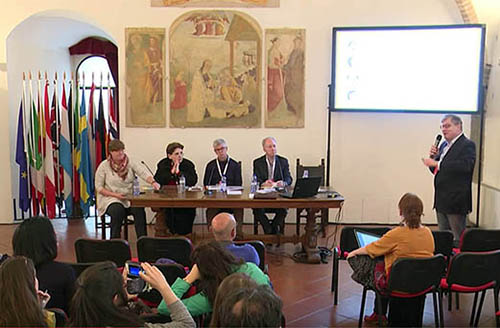Traditional media coverage of the migration question in the southern Mediterranean slowed down in the past two years due to changing priorities but online platforms picked up some of the slack, according to a study.
While more focus was on the coronavirus and budget cuts at news organizations hampered coverage, the report pointed to widened polarization between positive vs negative coverage with a spike in media fatigue in recent years leading to ad hoc and reactive reporting.

Magda Abu-Fadil (far right) presents results of her study on media coverage of migration in southern Mediterranean countries (courtesy ICMPD)
Media Unlimited director Magda Abu-Fadil presented results of the study she conducted at a panel on media and migration narratives and how effective partnerships can be established at the 4th EUROMED Migration Communicators Workshop in Paris in November 2021.
The event underlined the need for closer cooperation between journalists and migration-related entities to better convey the story of migrants, refugees and victims of human trafficking.
She used a questionnaire sent to journalists, academics and members of NGOs from Morocco, Algeria, Tunisia, Libya, Egypt, Lebanon and Jordan. Jordan isn’t on the Mediterranean but hosts large numbers of refugees and migrants.
The study’s results indicated various actors increasingly used migration for local political and economic goals; social media and “alternative news” became more important in shaping public opinion on migration issues; lack of regulations or control over dis-, mis- and mal-information added to the problem; social media as a tool against migrants, to spread xenophobia and to picture migrants as a potential threat, was a growing trend, notably in transit and host countries; the pandemic affected the number of stories, and, to a great extent, nature and tone of those published, broadcast and posted online; and, the spread of Covid-19 was used as an anti-migrant tool in several countries.
Abu-Fadil concluded by asking the following questions: What constitutes a news story, a feature, an investigative report on migration? Are people on wooden boats seeking freedom and a better life just statistics? What’s lacking in news coverage? Who is worthy of citizenship? Who can contribute to a new adopted homeland?
The workshop was part of efforts by EUROMED Migration V (EMM5) to redefine partnerships, by focusing on the communication skills required to promote balanced narratives that enable effective and sustainable migration policy.

